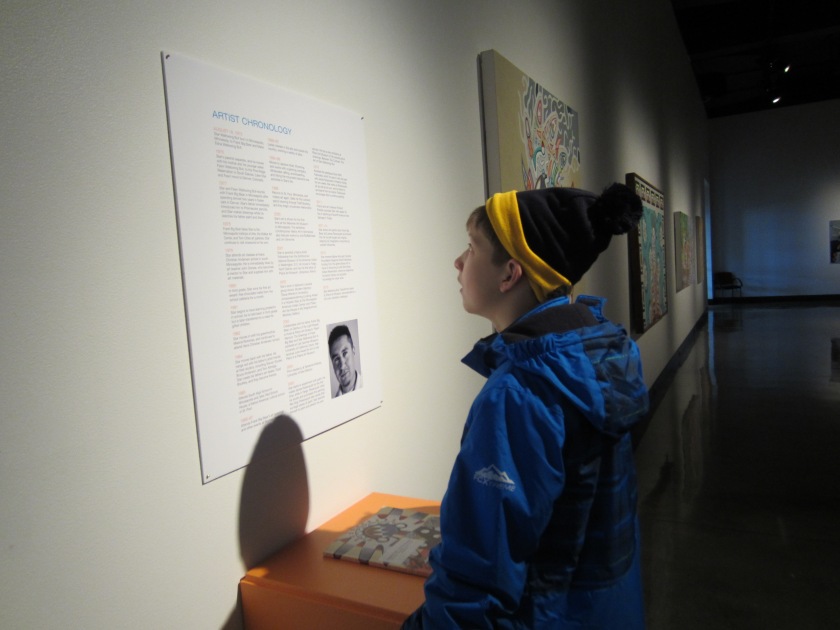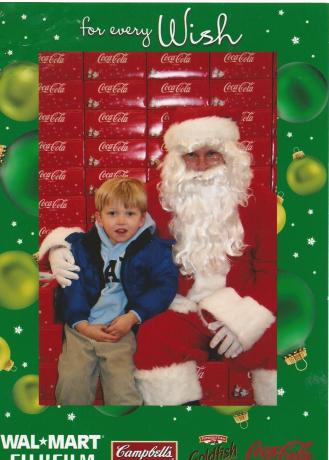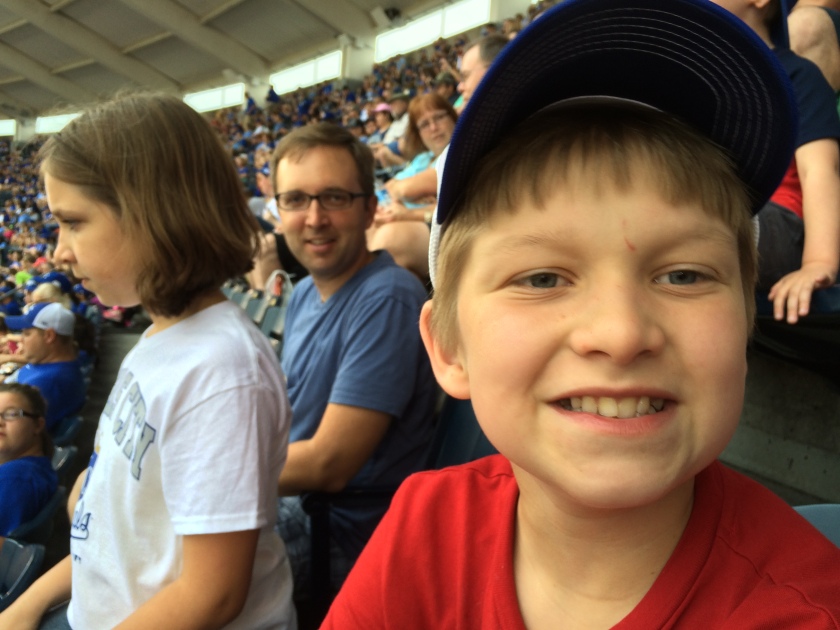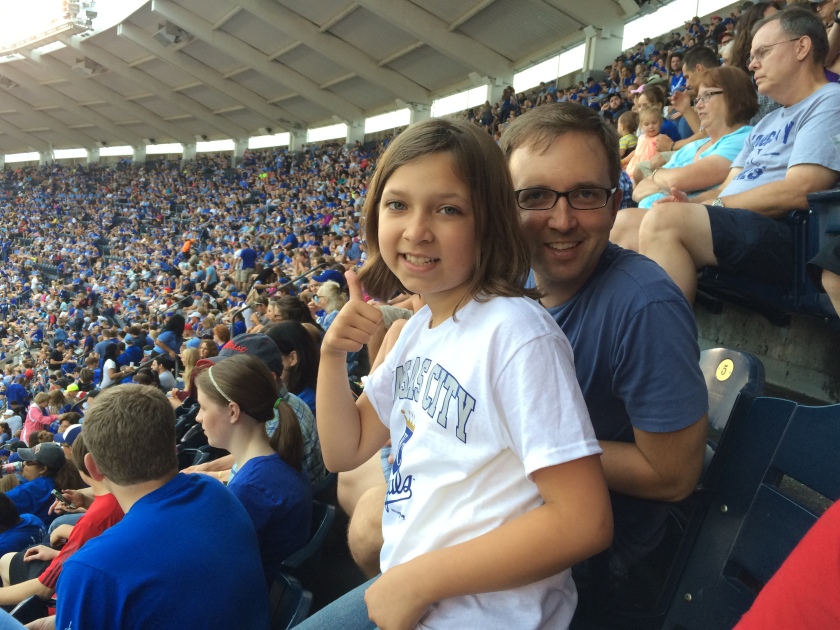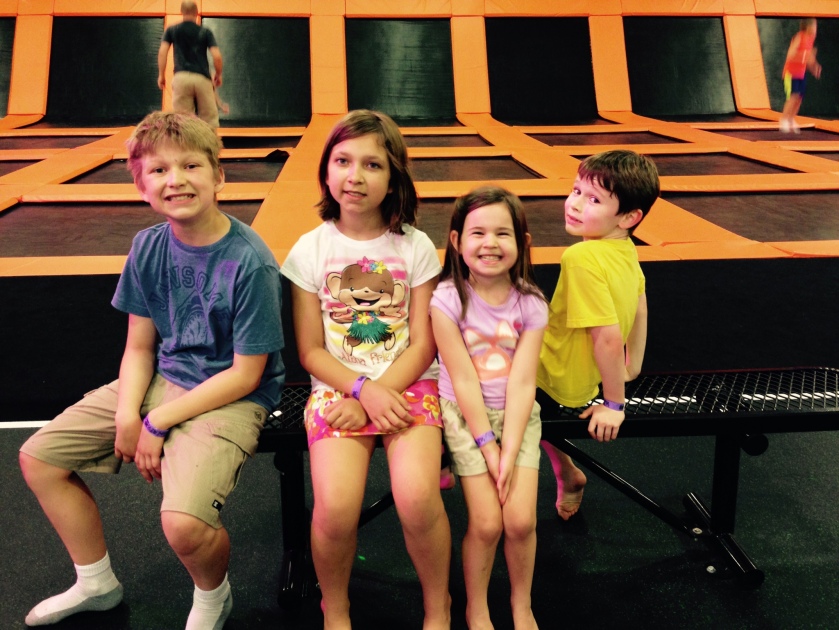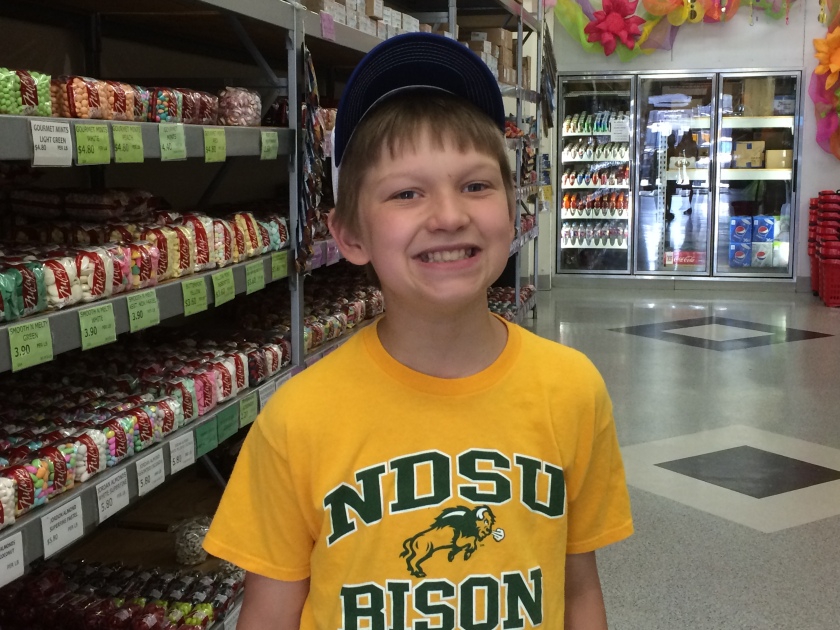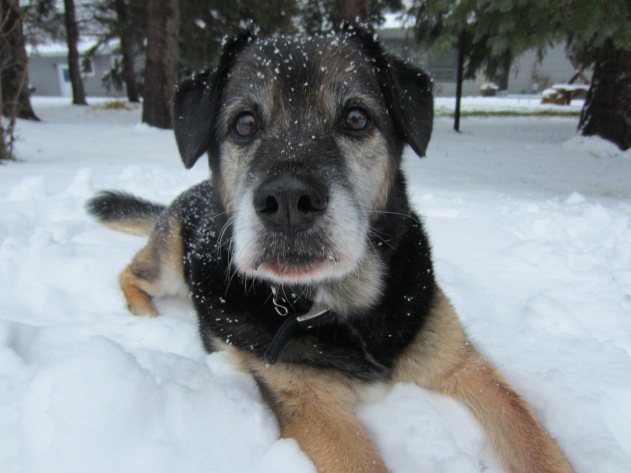
Steve and I never planned on getting a dog. 13 years of marriage and it never came up once, that is until January of 2014. W had gotten a fish tank for Christmas and within a week and a half and three trips to Petco (and PetSmart) we went through five guppies.
Five.
It was really painful to watch, with W tearfully questioning what she’d done wrong and why they had to “just keep dying.” She’d run to her bedroom everyday as soon as she got home to see if her fish had died while she was at school. Then, while sitting on the edge of W’s bed with an arm full of laundry, I watched the last guppy as it desperately fought dropsy and thought, This one’s a goner too.
And now we’ll have to get a dog.
Even though Steve and I never talked about it, the thought of getting a dog had crossed my mind before. I didn’t want a dog at all. I liked my house. We had finally started to recover from the grad school poverty days and had slowly accumulated “nice things.” I was thinking of all the other problems with dog ownership. The obedience classes. The potty training. Raising two kids is hard enough. I didn’t want that all over again. But every once in a while I had this nagging thought that the kids needed a dog. Even if I could convince Steve it might be a good idea, I couldn’t see it working for one big reason.
J was absolutely terrified of dogs.
So terrified that J’s anxiety around them made him dangerous. He would drop all of his things on the way to school, cover his ears, and run across the street without looking if he heard a dog bark or even saw one calmly coming towards him a block away. If we happened to get close enough to a dog, and the dog jumped or barked at all, J would scream and fight out of our arms to run away–making him all the more dangerous around an excited dog. He couldn’t even go trick-or-treating without screaming or crying because almost every other house in our neighbourhood had a dog. He hated going outside in the summer to ride his bike or ride his scooter because somewhere there might be a dog in someone’s back yard. He had even catalogued in his brain which houses had dogs.
I did some research about autism and dogs when the guppies started dying. There was a ton of anecdotal evidence of autistic children benefiting from dogs, but I couldn’t find any hard evidence supporting this. I did find one study at the time that dogs can benefit kids on the spectrum if introduced after the age of five. I watched videos of therapy dogs working with autistic children. In one video, after a year of daily therapy, a little boy with dog anxiety was able to pet a dog.
We weren’t going to spend thousands of dollars on a service dog, and I didn’t want to put up with a year’s work of very stressful conditioning in order for J to be okay with dogs. We were struggling with a load of other anxiety issues. I couldn’t do that.
Finally, we decided that we would try the humane society. With a two week trial we could see if we could really commit to a dog and see how J would react to it. If it didn’t work then we’d just give the dog back. We explained to the humane society the situation (that our son had autism and that there was a very good possibility we would be returning the dog). They were happy to help us, and said they had two senior dogs (Fred and Rupert) that met our requirements of 1) house trained 2) no barking 3) no jumping on furniture. We decided to give Fred a go.

We found out that Fred was with a foster family. All the noise and chaos of the kennel made him anxious (sound like someone else?). The foster family brought Fred over to our house (and kept him on a leash), and all of us stood in the front entrance huddled around Fred–except for J. J sat on the couch on the opposite side of the room, covering his ears, saying he didn’t like the dog and he wanted the dog to leave now.
The family said good-bye (trying not to choke up–they really liked him too and later we found out that they were considering to adopt him if we didn’t) and it was the four of us and Fred. J was still stressed, but eventually got off the couch. And we eventually convinced him to pet the dog (still on the leash–J insisted it stay on the whole time). The kids went to bed later that night, and the only way we could convince J to go to bed was to promise to give the dog back the next day. But I knew J. I saw how he was able to slink off the couch and pet him. I just had a feeling that it might work.
The next morning J woke up and said, “where’s Fred?” not because he wanted to make sure he was gone, but because something happened over night that made him okay with it. He was excited to see Fred.
I’m not going to say that two week trial was easy. It was awful–not because of the kids, the kids adapted just fine, but it was hard on Steve and me. I’d call my parents or sister and cry saying, “what have we done?” Fred had separation anxiety issues. He’d have accidents if we left him alone at home. Finally we learned that kenneling him while we were out would be a good option. Except that he hated the kennel too. It was a huge learning curve for me and Steve. I’d never had a dog and so I didn’t know what I was doing. We’d call friends with dogs for tips. We learned that dogs liked to sleep close to their owners and not in the basement by themselves. We ended up taking turns sleeping on the couch by Fred the first few nights because we didn’t know that.
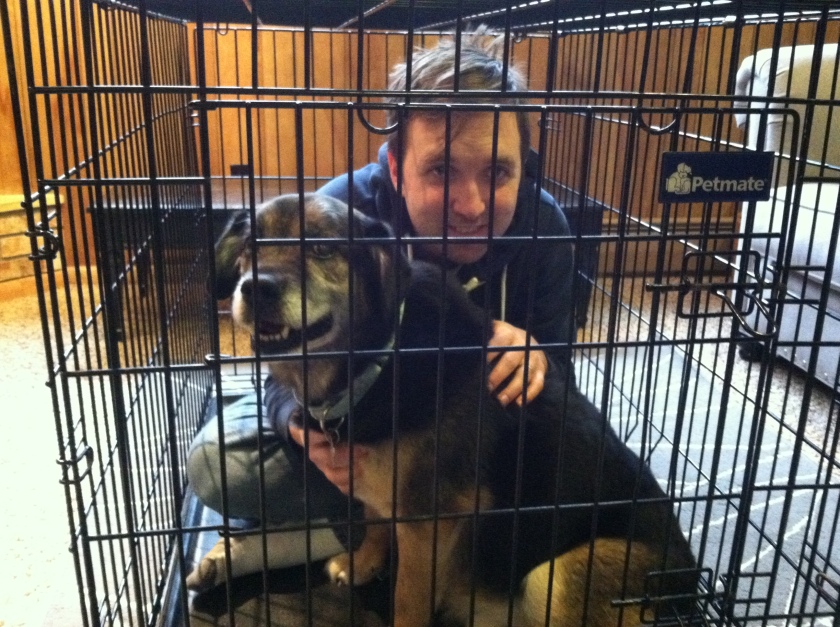
It’s been two years this week and I can’t imagine life without Fred. Yes, there are some days when Steve and I say, “why do we have a dog?” when we have to clean up a mess, walk him when it’s -20 out, or try to plan a summer holiday. But we’ve seen how he’s been great for both J and W. Sure Fred’s got his quirks–in fact J and Fred are similar in a lot of ways, but that’s what it means to bring someone into the family. Families are really just a big, beautiful mess. We chose to bring someone into a family but we don’t know what that really means, what the struggles and successes are that come with it. And how that someone will change entirely how you see life. How you all awkwardly and gracefully evolve into each other. I think about this all the time with J–I had no idea for almost two years that the baby I brought home would be so complicated. It’s not how I pictured my life to be like at all. But if you told me a few years ago we would be dog owners, I wouldn’t have pictured that either.







